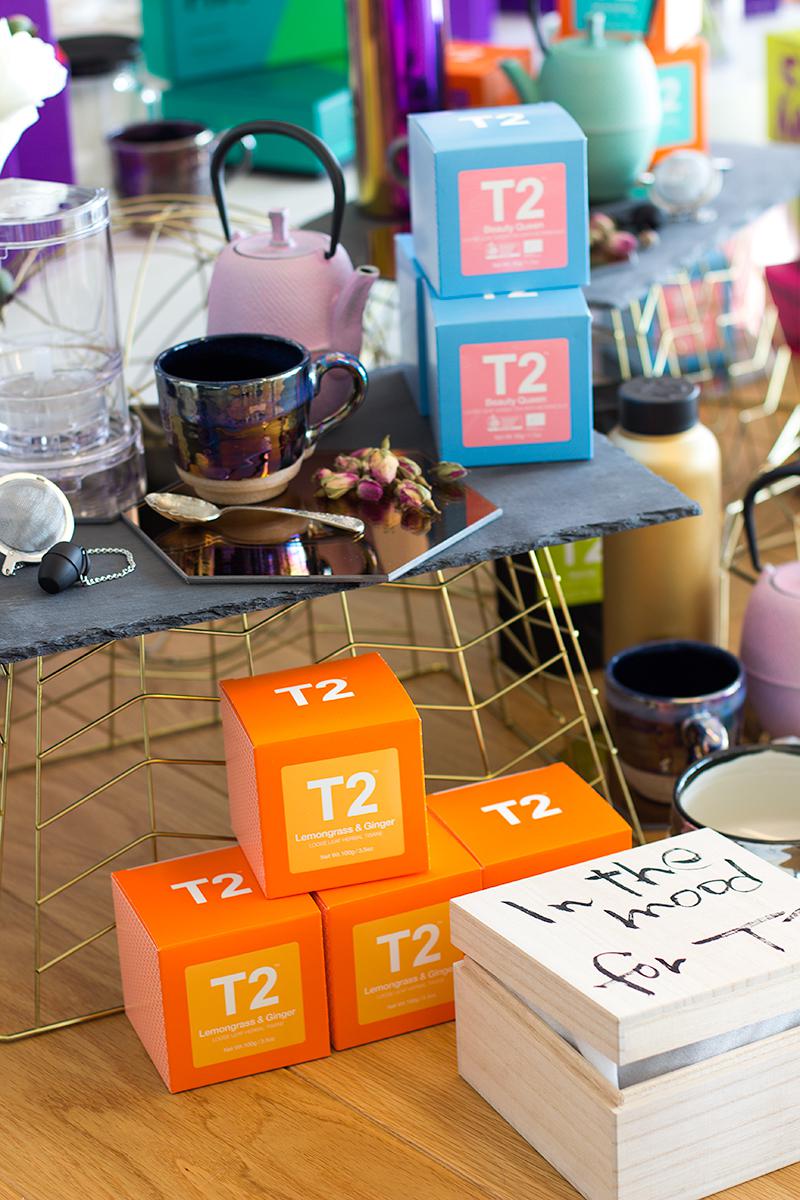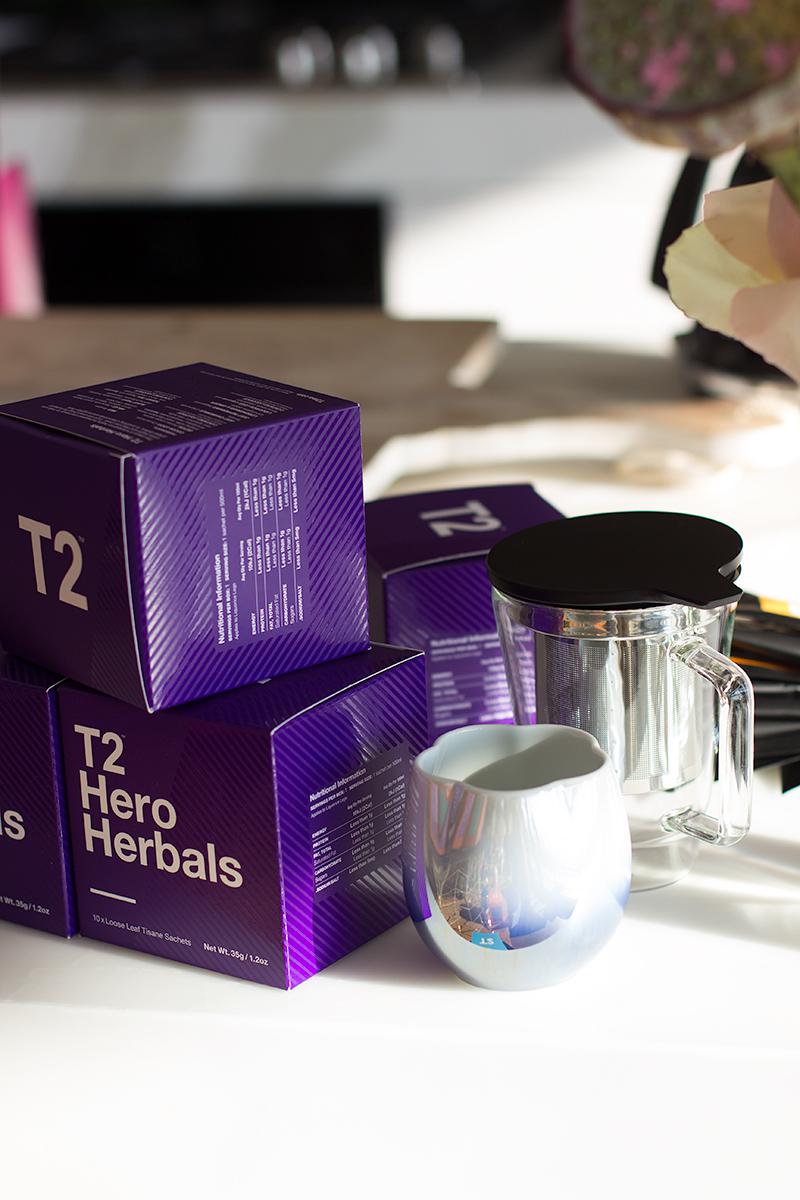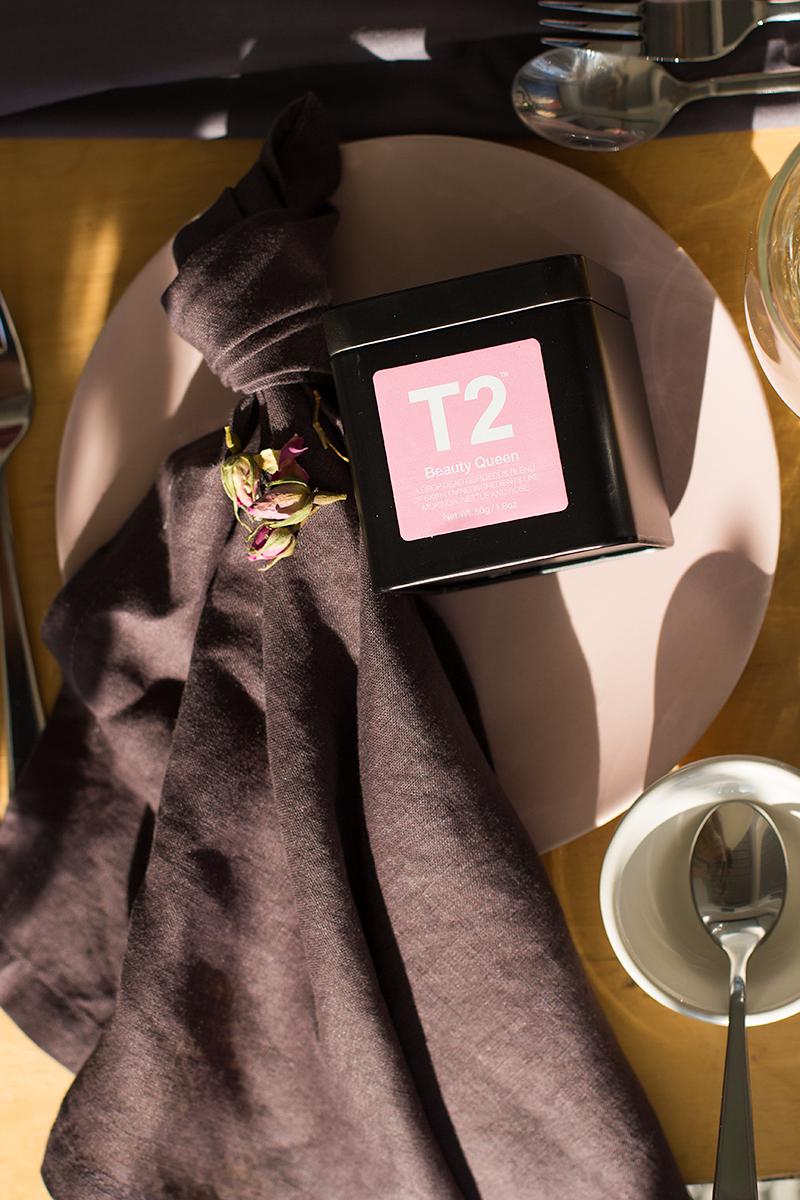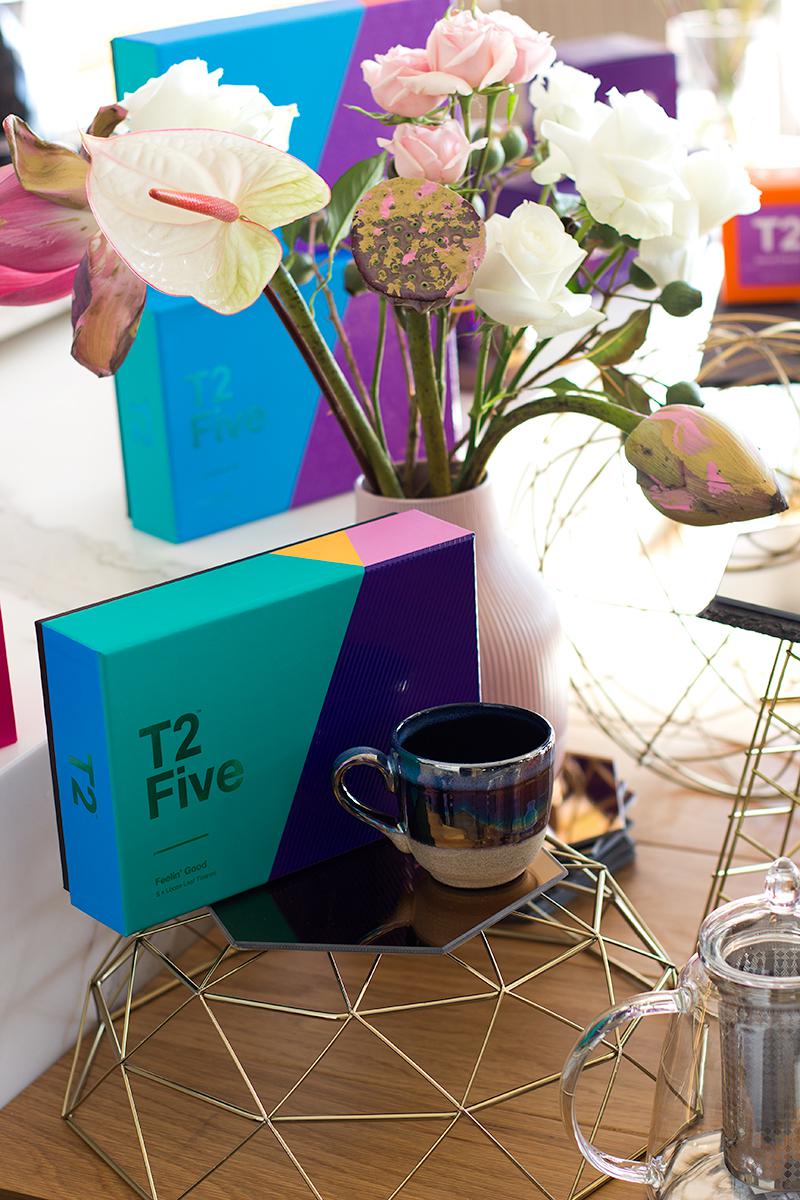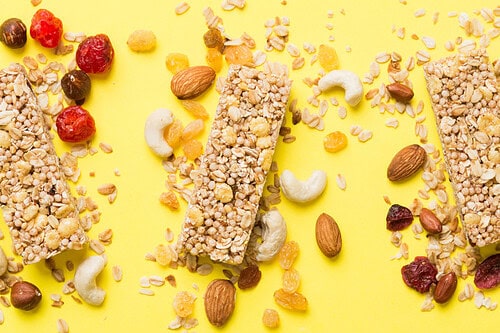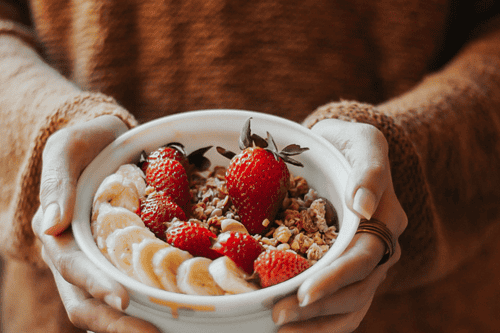This post is sponsored by the fabulous T2 and written with enthusiasm by one avid herbal tea drinker…
Recently I co-hosted the launch of T2’s new tea range in Sydney, where we also highlighted their variety of Wellness range teas. As an avid tea drinker and lover of all things herbal brewed, I loved working with T2’s fantastic team and being able to highlight the nutritional and medicinal benefits of drinking their divine teas.
The teas can be loosely classified into certain wellness areas, although to be honest with so many ingredients the blends really cross over into many beneficial realms. Today, I’m going to nerd out and share with you some of the highlights surrounding the benefits of drinking herbal teas.
Teas to help you unwind and relllaxxx
The ritual of preparing tea can be just as therapeutic as the tea itself. Making time for yourself to unwind and take time out is often accompanied by a good cuppa. It is often as simple as curling up with a hot tea and a book or just sitting outside to stop for a moment and taking in some of the day. Even a tea at your desk on a workday has an element of ‘slowing down’ to it.
Herbal teas can be medicinally used prior to bedtime to help induce alpha waves (the type of brain waves increased through mediation). Well known ingredients like chamomile have been shown to be a relaxant and to help reduce insomnia through up regulating production of our alpha waves. Chamomile is also a digestive relaxant, helping sooth an over stimulated or stressed gut. The sedative effects may be due to a type of flavonoid that binds to benzodiazepine receptors in the brain (1).
Lavender also has a history of use to boost mood and relieve anxiety. It has been shown in studies to be neuroprotective due to antioxidant effects. Studies of lavender oil have shown the natural compounds can reduce anxiety and improve mood. Just the odour of lavender has been shown to improved sleep, which is certainly part of the multi-sensorial experience of herbal teas (2).
Another stand out ingredient is spearmint that crosses over into quite a few health areas. Spearmint has been used to reduce fatigue, headaches and migraines. The menthol content has been found to relax nerves and muscles. There is also encouraging research for reduction of androgens (3).
Rose petal is another common ingredient with a gorgeous softening effect to the tea flavour that induces sleep and also balances mood due to its calming properties. Rose petal is also high in Vitamin C, which helps support the adrenals production of catecholamine’s adrenaline, noradrenalin and dopamine.
T2 does a brilliant blend aptly called Gone Surfing, which contains chamomile, lavender, rose petal and spearmint along with passionflower, lemon balm and silver lime leaves.
Teas to make you glow inside and out
We are what we eat (or drink) as the saying goes. What we put into our bodies on a daily basis and therefore absorb and assimilate ultimately feeds all of our cellular processes. A healthy digestive system is the core of our well-being, so nurturing and supporting this system will ensure that vibrancy and glow show on the outside.
The types of herbal teas I Iook for to support vitality and skin health are teas that in directly effect the skin by stimulating digestive secretions, enhancing enzyme function, soothing the gut lining and supporting lymphatic flow. I also look for teas high in antioxidants to reduce free radical activity.
A stand out and a personal favourite is definitely green tea, which is rich in phenol compounds that reduce growth of detrimental microbes in the gut, EGCG being the most well know constituent. (4) Green tea has also been shown to reduce androgen production, which makes it beneficial for androgen fueled ance (think classic conditions such as PCOS). Ginger is also a favourite as not only is it an anti-inflammatory, but it also enhances digestive secretions and supports gut motility.
Some other standouts are cardamom with its lovely aromatic flavour supporting circulation and detoxification. I also love licorice root for its digestive qualities, as it can sooth gut irritations and ulcerations. Herbs that support lymphatic flow such as burdock root are great along with nettle leaves, which are anti-inflammatory and have anti-histamine effects (great for eczema and dermatitis), whist also helping with reducing water retention. Beauty Queen by T2 contains these herbs along with moringa, spearmint, peppermint, rose petal and jasmine. This tea would be my favourite taste wise, yet I am biased when it comes to the flavour of green tea.
Teas to make your digestive system breathe a happy sigh of relief
You would have to be living under a rock these days to not realise that a healthy digestive system is the epicenter of our well-being. Mainstream media has now caught up and come on board, highlighting the importance of a diverse and robust microbiome. The use of herbal teas for digestion is one of my favourite areas. The teas can be used medicinally for those suffering with digestive ailments right through to just an every day pick-me-up after a meal.
Most commonly, these types of herbal teas support digestive secretions by enhancing enzyme function. Common herbs that do this include the aforementioned ginger, alongside the gastric soothing abilities of licorice. As also mentioned above, green tea contains phenol compounds that reduce growth of detrimental microbes in the gut. Green tea is also rich in chlorophyll, great for liver health and has also been shown in animal model studies to enhance the secretion of secretory IgA in the gut (Secretory IgA is vital for healthy digestive function and keeping the mucosal lining of the gut wall in tip top shape). (5)
Another wonderful medicinal tea ingredient for digestive health is fennel. Fennel enhances digestive enzyme secretion and is often used medicinally in Ayvervadic medicine after a meal (think of those fennel seeds coated in bright sugar coloured coatings found at the counter of Indian restaurants) helping sooth bloating and discomfort. Fennel also has antispasmodic effects by inhibiting calcium release in muscle contractions.
Other favourites are marigold petals and calendula though often used topically for wound healing, burns rashes and the like also have internal antifungal effects that help down regulate overgrowth of yeast in the gut (7). Lemongrass, so divine in its fresh flavour has a significant array of health benefits for the gut ranging from antiparastic, antibacterial and antifungal making it a must have in many digestive tea blends.
When combining these medicinal herbs in tea tinctures we can also enhance our gut health and our detoxification processes by supporting clearance of toxins and aiding healthy, regular bowel movements. Stand outs in the T2 range that I love for digestive support are Tummy Tea containing peppermint, licorice root, fennel, marigold petals and the super popular with the JCN Clinic team’s tea drinking habits Lemongrass & Ginger, containing – you guessed it – ginger and lemon grass.
I could go on and on about herbals, but lets bring this to a closure here and just pause to realise the benefits of including regular herbal teas. We can often jump straight to supplements (which of course have their place) without considering the dietary constituents that can significantly affect us on a daily basis. Using herbal teas as part of our daily rituals can have wonderfully profound effects.
references
(1) J K Srivastava et al, 2010, Chamomile: A herbal medicine of the past with bright future, Mol Med Report.
(2) muhammad ayaz et al, 2017, neuroprotective and anti-aging potentials of essential oils from aromatic and medicinal plants, front aging neurosci.
(3) P Grant, S Ramasamy, 2012, An Update on Plant Derived Anti-Androgens, Int J Endocrinol Metab. Spring
(4) W C. Reygaert, 2014 The antimicrobial possibilities of green tea, Front Microbiol.
(5) M Monobe et al, 2014, Effect on the Epigallocatechin Gallate/ Epigallocatechin Ratio in a Green Tea (Camellia sinensis L.) Extract of Different Extraction Temperatures and Its Effect on IgA Production in Mice, Bioscience, Biotechnology, and Biochemistry,
(6) K Sak et al, 2017, Cytotoxic effect of chamomile (Matricaria recutita) and marigold (Calendula officinalis) extracts on human melanoma SK-MEL-2 and epidermoid carcinoma KB cells, Congent Medicine, Volume 4.
Jessica Cox is a qualified practicing Nutritionist with a Bachelor Health Science (Nutrition) and over 15 years of clinical experience. She is the founder and director JCN Clinic, published author and established recipe developer. Jessica is well respected within health and wellness space for her no fad approach and use of evidence-based nutrition.

